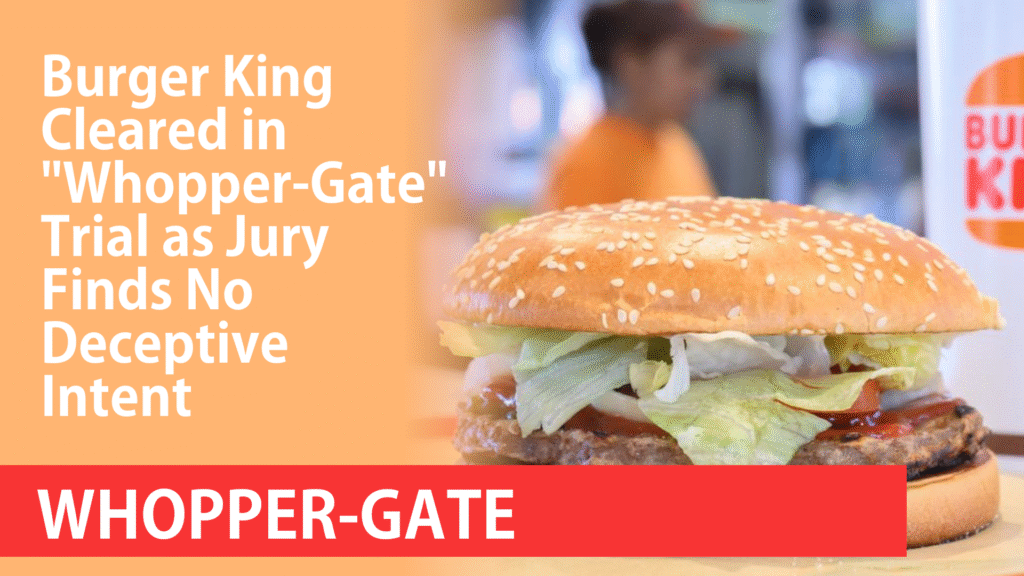
In a dramatic conclusion to a high-profile class-action lawsuit dubbed “Whopper-Gate,” a federal jury in New York ruled in favor of Burger King, clearing the fast-food giant of allegations that it had intentionally misled customers through exaggerated advertising of its iconic Whopper sandwich.
The suit, filed by a group of 15 consumers from across the U.S., alleged that Burger King’s advertisements portrayed the Whopper as significantly larger and meatier than what was actually served in stores. The plaintiffs argued that since 2018, Burger King’s marketing had overstated the sandwich’s size by as much as 40%, influencing customers to buy under false pretenses.
However, after two weeks of testimony and review of both internal marketing communications and industry standards, the jury ruled unanimously that the company did not act with deceptive intent.
“Appealing ≠ Deceptive,” Says Jury Foreman
Jury foreman Angela Kim, a marketing professor from New Jersey, said in a statement:
“We found that while the images used in advertisements were clearly styled to look their best, this is a common practice in the food industry. There was no compelling evidence that Burger King deliberately sought to defraud customers or misrepresent the actual product.”
Burger King’s lead counsel, Mark Delaney, welcomed the verdict:
“This is a victory not just for our client, but for advertisers who rely on visual representation as a tool—not a trap. Consumers are savvy and understand that promotional images are meant to be illustrative.”
Plaintiffs React with Disappointment
Plaintiff Raymond Douglas, who brought the original complaint, said outside the courthouse:
“We’re disappointed, but not surprised. Big corporations often win these battles. Still, we hope this raises awareness about truth in advertising.”
His legal team has indicated they may appeal the decision or pursue action through the Federal Trade Commission.
Burger King’s PR Twist: “Transparency Campaign” Launches
In a surprising move following the verdict, Burger King announced it will still move forward with a “Whopper Real Talk” transparency initiative—featuring new ads showing the sandwich in everyday conditions, with unedited photos submitted by customers.
Marketing VP Laila Ortega said:
“We didn’t have to change, but we want to. This is a chance to meet customers where they are and own the ‘everyday burger’ story.”
Industry Implications
Experts suggest the verdict may set a precedent for how far fast-food imagery can stretch without crossing legal lines. While the food stylists breathe easier today, watchdog groups say they’ll continue pushing for regulations that keep marketing honest.